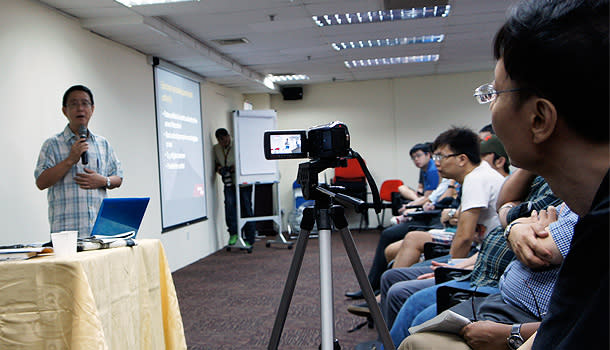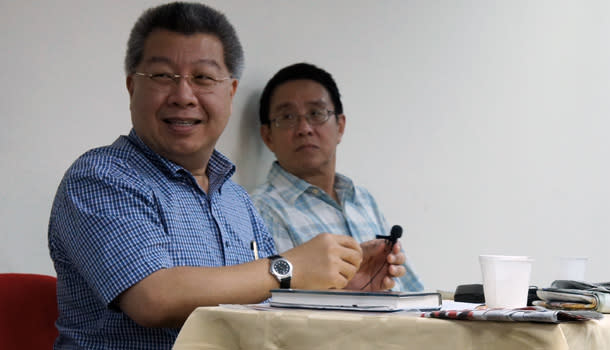‘Voters’ expectations could shape President’s role’

The Constitution explicitly states the President's powers, but circumstances such as people's expectations and the President's political acuity will go some way in charting new pathways for the highest office in Singapore, said two commentators.
Speaking on the Elected President's mandate at a forum organised by local human rights body Maruah on Saturday, constitutional law expert Kevin Tan and socio-political blogger and civil society activist Alex Au highlighted "grey areas" surrounding the Presidency to show that the role is not straightforward.
For instance, many Presidential candidates said they want to advance a charitable cause, but this raises the question on whether the President can support a charity that promotes a cause not aligned with government action.
Using a fictitious example, Professor Tan asked: Can the President support an anti-nuclear charity if the government wants to build a nuclear plant?
Prof Tan is an adjunct professor at the National University of Singapore and at the S Rajaratnam School of International Studies at the Nanyang Technological University.
"Can he (the President) publicly call on the government to do something? Grey area," added Prof Tan.
"If he attended a MOE function and said, "Oh, I think these types of programmes are very good, the government should do more." I think that's quite well within presidential discretion to do so," he said.
But what if the President criticises the event? "It's becoming very tricky. How do you then influence policy?" asked Prof Tan, who also raised the question: "What counts as criticism?"
For Au, it is "artificial" to restrict the President's authority to five areas. Not allowing the government to dip into the reserves or vetoing key appointments already shows implicit criticism of the government, he noted.
"Law can only anticipate so much, it can only govern so many areas of the Presidential office. A lot more will, as Kevin says rightly, depend on common sense but also on the situational context," said Au. "In the end, it's a system where people operate.
Actual practice, which could set precedents, will likely depend on five things, he said. They are: the President's temperament, political acuity to know when to push the boundaries, the resistance of the Cabinet, size of political majority and public opinion.
Au, who feels people will vote based on how much they like a candidate and the affinity they feel toward him, pointed out, "The moment somebody is popularly elected, he has moral authority from an electoral mandate and that moral authority changes a lot of other calculations. There are dynamics of voter expectations."
This potential conflict between the reality of the Presidency and expectations of the office will help drive the evolution of the office, he said.
While Law Minister K Shanmugam has given his take on the role of the President based on the Constitution, Prof Tan, responding to a question from the floor, said no one has the ultimate say in the interpretation of the Constitution as that is the role of the courts.
But there are some things the Constitution has made clear such as the President cannot direct investments or disband Temasek Holdings, he said. These were suggestions by Presidential candidates Tan Kin Lian and Tan Jee Say, respectively.
Meanwhile on Saturday, Minister Shanmugam said Singapore would need to change the Constitution to allow the President to speak whenever he likes and on whatever topic he likes, reported Channel NewsAsia.
He also said no lawyer has told him his comments on the powers and roles of the President as defined in the Constitution is incorrect.
Minister Shanmugam earlier outlined the role of the President as being custodial and not executive.
Other than having veto powers limited to specific areas, such as past reserves, the President must act in accordance with the advice of the Cabinet, he said.


